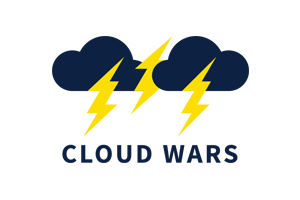
The database market is an ever-shifting competitive landscape, for years shaped by new players and platforms that promise better ways of managing data and delivering faster insights. Now, the database market is entering a new phase of intense competition between industry incumbents, cloud-native startups, and the Big 3 public cloud providers.
This battle for the hearts and minds of developers and IT teams is being spurred by rapid data growth, the transition from on-premises data management to the cloud, and new cloud offerings such as “serverless” that automate manual processes, easing some of the workload on database administrators.
All of this plays to the strengths of the leading cloud providers—Microsoft, AWS, and Google Cloud, who are becoming the new center of gravity in the cloud database market. The Big 3 are providing a constant stream of innovative new data-management services enriched by surrounding technologies, including AI, machine learning, analytics, storage, and developer tools.
What about Oracle? With 40-plus years of experience in enterprise data management, Oracle is still viewed by many as best in class, but AWS, Google Cloud, and Microsoft Azure have strong momentum. In Gartner’s 2021 Magic Quadrant for Cloud Databases, AWS, Google Cloud, Microsoft, and Oracle are in a tightly knit cluster of leaders.
In fact, there’s an unmistakable correlation between overall cloud leadership and cloud database leadership. In Cloud Wars’ ranking of the Top 10 cloud vendors, Microsoft is #1, Amazon #2, Google Cloud #3, and Oracle #6. (That’s worth noting because not all cloud vendors are database providers, and vice versa.)
5 Common Advantages
Heading into 2022, each of the Big 3 cloud providers will no doubt continue with their rapid-fire delivery of new database services and capabilities. Each vendor has its respective advantages, and challenges, which I will review shortly. But first, here are five common characteristics that help explain why Microsoft, AWS, and Google Cloud have emerged as cloud database leaders.
- Continuous innovation. Each of the Big 3 offers a steady stream of improvements. For example, at its re:Invent conference, AWS introduced dozens of new capabilities, such as Private 5G Clouds and serverless analytics services.
- Fast & easy integration. Surrounding services such as storage, data migration, IoT, ML frameworks, and more are part of an integrated, overarching infrastructure and architecture at these companies.
- Purpose-built databases. Each vendor offers a range of database options, both home-grown and third-party, for different types of workloads, such as data warehousing, transactions, application modernization, graphs, etc.
- Industry cloud solutions. The Big 3 are quickly developing domain expertise in financial services, healthcare, manufacturing, retail, and other industries, with data management central to the applications and processes.
- Flexible deployment options. The cloud providers offer both fully managed and self-managed database services, and solutions for hybrid cloud environments and multi-clouds.
Platform and Strategy Comparison
That’s my top-line analysis of why the Big 3 public cloud providers are strengthening their foundations in the cloud database market. Following is a breakdown of the relative advantages and challenges of each.
AWS
- Advantages: impressive lineup of purpose-built databases; comprehensive infrastructure services; internally designed/optimized data center hardware; fine-grained pricing for cost control; global availability zones
- Challenges: high-impact global service outages in 2021; viewed by customers as a potential competitor; expensive to move data out of AWS cloud
- In their own words:
“Today’s applications are serving exponentially more customers, in some cases, hundreds of millions of people around the world. These applications can peak at millions of requests per second with very low latency. So, there’s just no way that one database works for all of these applications, which is why people are now tailoring their database choices to the needs of their application…. That’s why we’ve invested so much to bring you the broadest selection of databases that you’ll find. On the relational side, we have Amazon RDS, which supports five different relational engines, and Amazon Aurora, which is built from the ground up to give you the performance and availability of commercial-grade relational databases, and at one-tenth of the cost of other providers. Aurora continues to be the fastest-growing service in AWS history.” – AWS CEO Adam Selipsky at re:Invent, November 2021
- My take: With more than a dozen purpose-built databases, AWS has one of the most complete portfolios of database technologies. This makes it easy for developers and IT teams to mix & match those databases with a broad array of AWS infrastructure services—virtual servers, containers, networking, security, storage—for rapid development, enabling business agility in the acceleration economy. The potential downside to AWS’s 200-plus cloud services is complexity, requiring skilled teams to build and manage it all.
Google Cloud
- Advantages: popularity of BigQuery data warehouse and Cloud Spanner database; Google Cloud Platform incorporates Alphabet’s data center and security best practices; fast-growing enterprise proficiency driven by CEO Thomas Kurian; derivative innovations such as Google Earth Engine
- Challenges: behind AWS and Microsoft Azure in cloud revenue; enterprise capabilities and partnerships still emerging; parent company Alphabet casts a long shadow with search and advertising
- In their own words:
“Google’s Data Cloud is the most complete and unified data and AI platform to help you manage every stage of the data lifecycle, from running operational transactions to developing analytical applications. We help customers unify data lakes and warehouses as data lake houses to reduce complexity and to combine structured and unstructured data. Built-in data science and AI with support for MapReduce, Spark, and Presto enable continuous learning and experimentation…. Google’s Data Cloud is also unmatched for speed, scale, security, and reliability.” – Google Cloud CEO Thomas Kurian at Next, October 2021
- My take: Google Cloud has hitched its wagon to CEO Thomas Kurian’s extensive experience with enterprise-class data technologies and industry-specific solutions. We can see the evolution as Google Cloud continues to grow rapidly and win new customers. Recently introduced technologies such as self-service analytics (Analytics Hub), data synchronization (Datastream), and an intelligent data fabric (Dataplex) are evidence of a maturing data platform, enabling what Google Cloud calls “data clouds.”
Microsoft
- Advantages: #1 ranked cloud vendor by Cloud Wars; SQL Server popular among developers; Azure Arc for hybrid/edge/multi-cloud management; Azure Synapse for data warehousing and analytics; comprehensive data governance via Azure Purview; Dataverse low-code platform
- Challenges: reputation as primarily a “Windows shop”; Cosmos DB and other security vulnerabilities in 2021; some services still in preview
- In their own words:
“Every business is becoming a digital business and building your own digital capability will be of paramount importance. This requires you to have the best multi-cloud, multi-edge infrastructure. And it requires that you have the best tooling to support fusion teams across the organization while working together to build new solutions…. Going forward, every organization will need a more distributed, more intelligent, more autonomous computing fabric, one that they can use to rapidly build, manage, and deploy applications anywhere.” – Microsoft CEO Satya Nadella at Ignite, November 2021
- My take: Microsoft’s long history as an enterprise computing environment that supports line of business processes with the widely used Microsoft 365 application suite puts its data-management technologies at the core of IT for many customers. In his Ignite keynote, CEO Nadella didn’t mention databases, but he talked extensively about digital business where “data and intelligence flow freely.” That requires cloud databases and related technologies.
As this analysis shows, AWS, Google Cloud, and Microsoft are making big strides in the cloud database market. At the same time, they continue to face strong competition from traditional vendors such as Oracle, IBM, SAP, and Teradata, as well as from fast-rising newcomers such as Cockroach Labs, Databricks, DataStax, Neo4j, Redis, and Snowflake.
In fact, the Big 3 are partners with many of the same companies they compete with in database platforms. That means customers have more options for managing and realizing value from, the terabytes and petabytes of data growing across their operations.
To hear more about the latest developments from leading cloud database providers, join Acceleration Economy’s Cloud Database Battleground on January 27.






